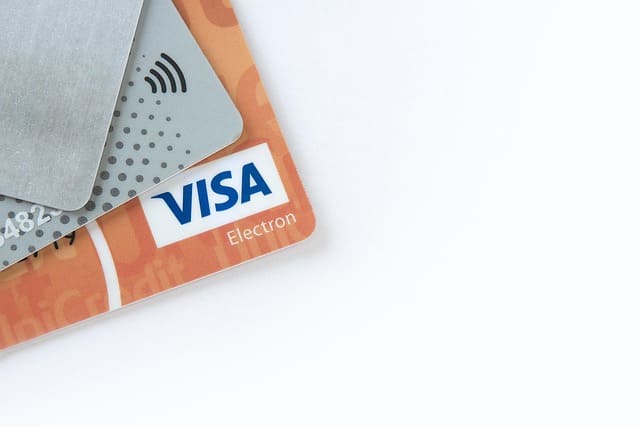Credit Card Adoption Trends Among US Small Businesses
The landscape of small business finance is undergoing a remarkable transformation as credit card adoption surges among entrepreneurs seeking flexible capital solutions, streamlined expense tracking, and rewards programs specifically tailored to business needs in today’s increasingly digital marketplace.
How Small Businesses Benefit From Credit Card Adoption
Small business owners are discovering that dedicated business credit cards offer significantly more advantages than personal cards or traditional loans when managing day-to-day operations and unexpected expenses.
The separation of personal and business finances through dedicated business cards creates clearer accounting trails, simplifies tax preparation, and establishes proper financial boundaries that protect entrepreneurs’ personal assets in case of business difficulties.
Business-specific rewards programs provide substantial returns on common expenditures like office supplies, telecommunications, shipping, and travel—effectively reducing operational costs through cashback, points, or miles that can be reinvested directly into the business.
Key Credit Card Features Driving Small Business Adoption
Interest-free financing through introductory 0% APR periods has become a critical factor in adoption rates, allowing entrepreneurs to make substantial purchases or manage cash flow gaps without incurring immediate interest charges.
Employee card features with customizable spending limits enable business owners to delegate purchasing responsibilities while maintaining strict oversight through real-time transaction alerts and detailed monthly statements organized by cardholder.
Advanced expense tracking and integration with accounting software platforms like QuickBooks, Xero, and FreshBooks has eliminated hours of manual data entry, automatically categorizing expenses and creating digital receipt storage systems that streamline financial management.
Industry-Specific Credit Card Usage Patterns
Retail businesses are increasingly leveraging credit cards with inventory financing options and higher limits during seasonal purchasing periods, with many retailers reporting 30-40% improvements in stock management capabilities through strategic card usage.
Service-based entrepreneurs like consultants, freelancers, and professional service providers favor cards offering travel benefits and client entertainment rewards, using these perks to offset business development costs while maintaining competitive pricing.
Construction and trade businesses have shown the fastest growth in adoption rates, primarily seeking cards with fuel rewards, vehicle maintenance benefits, and building supply store partnerships that directly address their unique expenditure patterns and cash flow challenges.
Digital Integration Transforming Business Card Experience
Mobile wallet compatibility has become nearly universal among business credit cards, with entrepreneurs increasingly conducting transactions through smartphones rather than physical cards for improved security and convenience in both online and in-person payment scenarios.
Real-time expense notification systems allow business owners to receive instant alerts about every transaction, significantly reducing unauthorized spending and providing immediate insights into cash flow patterns throughout the business day.
Virtual card number generation for online purchases has addressed security concerns that previously prevented some small businesses from embracing digital payments, creating single-use or merchant-specific numbers that protect the primary account from potential data breaches.
 Fonte: Pixabay
Fonte: PixabayConclusion
Credit card adoption among small businesses represents more than a shift in payment methods—it’s fundamentally changing how entrepreneurs access capital, manage expenses, and position their companies for sustainable growth in competitive markets.
The integration of artificial intelligence and machine learning into business credit card platforms is creating increasingly personalized experiences, with spending pattern analysis that helps entrepreneurs identify cost-saving opportunities and optimize their financial decisions based on industry benchmarks.
As financial institutions continue developing small business-specific card offerings with reduced fees, flexible payment terms, and enhanced digital tools, we can expect adoption rates to accelerate further, particularly among younger entrepreneurs who prioritize technological integration and financial flexibility over traditional banking relationships.
Frequently Asked Questions
What credit card features do small businesses value most?
Small businesses prioritize no annual fee options, generous cash-back on business expenses, introductory 0% APR periods, and seamless integration with accounting software.How are credit card rewards different for businesses versus consumers?
Business rewards focus on office supplies, telecommunications, shipping, advertising, and travel categories with higher earning potential and redemption options specifically designed for business reinvestment.Can small business owners with limited credit history qualify for business credit cards?
Many issuers now offer secured business credit cards and starter products with lower requirements, helping entrepreneurs establish business credit while accessing essential card features.What security features are most important for small business credit cards?
Advanced fraud detection, employee spending controls, virtual card numbers for online purchases, and instant transaction notifications rank highest among security priorities.How do seasonal businesses optimize credit card usage?
Seasonal operations leverage cards with 0% introductory periods for inventory purchases, higher limits during peak seasons, and flexible payment programs that align with their irregular revenue cycles.


